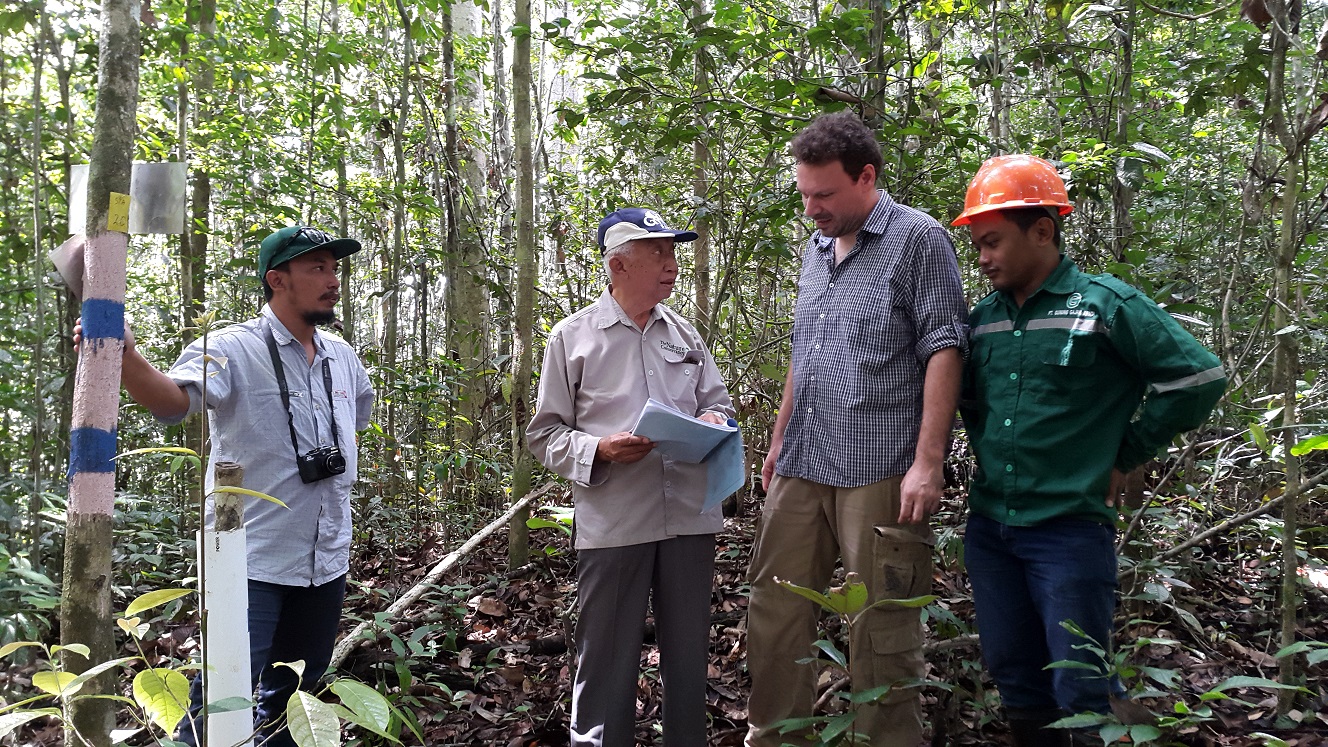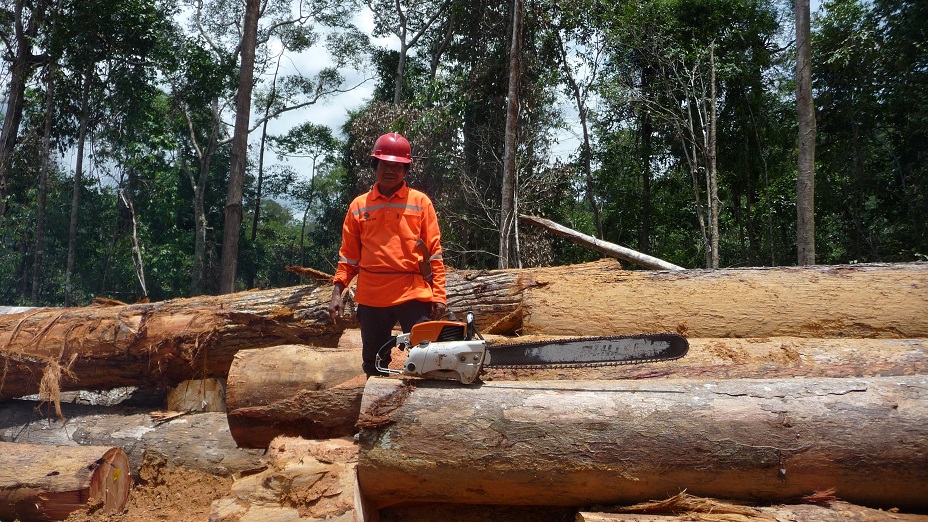FORCLIME continues cooperation and capacity development in the field of SFM through forest certification (SVLK/ PHPL/ FSC) in the FMU Berau Barat by collaborating with The Borneo Initiative (TBI) and The Nature Conservancy (TNC). From 28 September until 07 October 2016, a team from the organisations above conducted site visits in the three forest concessions supported by FORCLIME, namely PT. Utama Damai Timber (UDIT), PT. Wana Bhakti Utama (WBPU) and FSC certified PT. Gunung Gajah Abadi (GGA). The activity, which is part of FORCLIME’s support under the strategic area ‘SFM Sustainable Forest Management’, took place in the FMU Berau Barat, Berau District, East Kalimantan. Support to concessions to obtain SFM certification from the SVLK/ PHPL mandatory national certification scheme and the Forest Stewardship Council (FSC) has been provided since 2013.

The goal of fostering SFM and FMU development is tackled by intensively working together with so called certification coaches aiming at involving local communities and the private sector. Joint activities include technical trainings, social impact studies and community participation. The certification coaches monitor and supervise the studies, trainings and activities that lead towards one of the above mentioned forest certifications. Depending on the progress made by each forest concession and their experience with SFM, the process of receiving the SFM forest certification varies. Some decisive factors include experience and start-up investment (e.g. forest and basic infrastructure in virgin natural production forests), or duration of operations in the concessions; some companies already operate for more than 30 years whereas others started operations only five years ago.
In terms of forest operations and Reduced Impact Logging to reduce emissions (RIL-C), all three concessions received the full RIL training. This has resulted in at least 25% emission reduction on 136,000 ha, according to the TNC Verified Carbon Standard (VCS) methodology.
The field team observed that river water levels play a crucial role in transporting logs, which ultimately influences the company’s revenue streams. Many concession companies rely on the feasibility of river based rafting practices. Low river water levels result in long storage periods of logs by the river. However this leads to reduced log qualities which may affect log sales prices. Additionally natural events such as irregular rainfall have a major impact on the success of the concession company and hence the sustainability of logging in natural production forests. The optional pure road transport of logs may be an option for some concessions but not for all.
Additionally challenging terrain in mountainous areas and rainfall patterns significantly influence the logging operations as such. Heavy rainfall can stop operations until sunny weather dries the trails and roads for machines and trucks to operate safely.
As far as FSC certified concessions are concerned, managers positively reported on price premiums for FSC certified logs. In certain cases it seems that up to 10% price premiums are paid by buyers based on their clients’ requests.
The visits paid to tree nurseries in the concessions as well as field observations led to the conclusion that there will be a continuous shift of age and diameter classes as well as tree species composition over the future decades in the natural production forests. It became clear that the timber companies reforest and enrich their forest stands with species listed as ‘commercial tree species’ which can be found in the concession’s inventory documentation. Fast growing native species are planted on open spaces left behind from logging operations.
The silvicultural system and logging restrictions are currently based on species, target diameter and logging rotation cycle (30 years). Tree age, forest composition and (annual) increment are generalized over species categories and often poorly documented and/ or analysed as the information is not required to obtain a logging license.

The FMU Berau Barat covers approximately 780,000 hectares. Almost 50% of the area is categorized as limited production forest (Hutan Produksi Terbatas – HPT) and production forest (Hutan Produksi – HP). Within the FMU Berau Barat there are 12 forest concessions (natural forest/plantation forest). Therefore, the implementation of SFM in the concessions is an essential indicator and crucial for climate change mitigation actions.
For further information, please contact:
Tobias Goedde, Strategic Area Manager for Sustainable Forest Management
Suprianto, Technical Advisor for FMU development, Berau office






